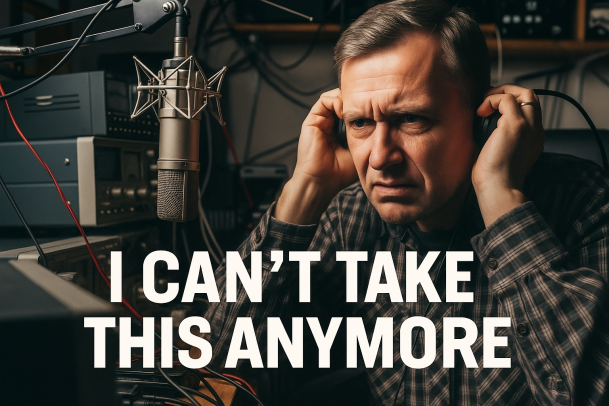
@ DX Hunters! Ever wondered why your head pounds after a solid stint on the microphone?
Why your ears throb like Marshall stacks after a DX marathon?
Or why you’re extra squirmy in the shack chair after hours of chasing rare ones?
Chances are, you’ve been hit by ‘Listener Fatigue’.
Ask any Dx Adventure Radio Club (DA-RC) member who’s worked from a ‘Most Wanted’ DX entity, or a die-hard DX Hunter who’s slogged through hours of calling, and they’ll know exactly what I’m talking about…
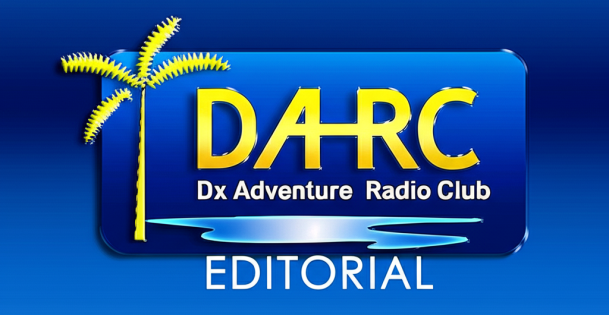
What is Listener Fatigue?
In serious terms, “Listener Fatigue (LF)” is a real physiological response to prolonged exposure to certain acoustic environments — common ones in our hobby.
And it’s more than just “tired ears.”
In addition to headaches, it can bring:
- Restlessness
- Drowsiness
- Irritability
- Tension
- Discomfort and pain
- Elevated blood pressure
- A noticeable drop in enjoyment of the hobby
Let that last one sink in.
When the very thing we love — DX — becomes uncomfortable, it’s time to pay attention!
Where Did This All Begin?
LF was first documented during World War radio operations, especially in Short Wave Listening (SWL) with military personnel. Fast forward to today, and it’s now accepted in music, construction, aviation — and of course, amateur and Freeband radio.
According to Wikipedia, LF is:
“A phenomenon resulting from prolonged listening to sound whose distortion content is too low to be audible but high enough to be perceived subliminally, causing discomfort…”
But in simpler terms?
It happens when audio is too loud, too muddy, and goes on too long.
Causes of LF in Radio
Here are the usual suspects behind this DX villain:
-
Sensory Overload
Think pileups — where multiple signals crash in from every angle. The brain has to work overtime to isolate the station you want, filtering out the rest. That’s exhausting.
-
Chronic QRN & QRM
Even if you’re used to it, background hiss and interference (QRN/QRM) force the ear to constantly filter sound. Over time, that effort adds up.
-
Low Signals = High Volume
Weak signals mean the volume knob creeps up. And stays there. This sustained loudness contributes significantly to fatigue.
-
Audio Rack Misuse
For the audio purists among us: poorly aligned EQs, compressors, and processors don’t just affect your TX signal. They wear you down, too.
-
Long Operating Stints
Twelve hours straight in the shack during a DXpedition? No surprises here — the body tires, the ears suffer, and LF sets in fast.
How to Prevent Listener Fatigue
Reducing volume alone isn’t a cure-all. But there are steps you can take to preserve your hearing, sharpness, and love of the airwaves:
✅ Follow the 60/60 Rule: No more than 60 minutes of listening through headphones at 60% of max volume. Then take a break. Step outside. Hydrate. Let the ears reset.
✅ Share Mic Time: If you’re on a DXpedition, rotate the op chair regularly. Fresh ears = better results.
✅ Turn it Down: Even a slight reduction in volume can drastically delay the onset of LF.
✅ Choose Better Speakers: Opt for studio monitors with smoother high-end response. Models like the PreSonus Eris E5, Focal Twin6 Be, or ATC SCM25A Pro are well-regarded for extended listening comfort.
✅ Experiment with Speaker Placement: Tiny adjustments in position can change how sound hits your ears. Try moving one speaker or listening in mono for comparison — it may reduce mid/high harshness.
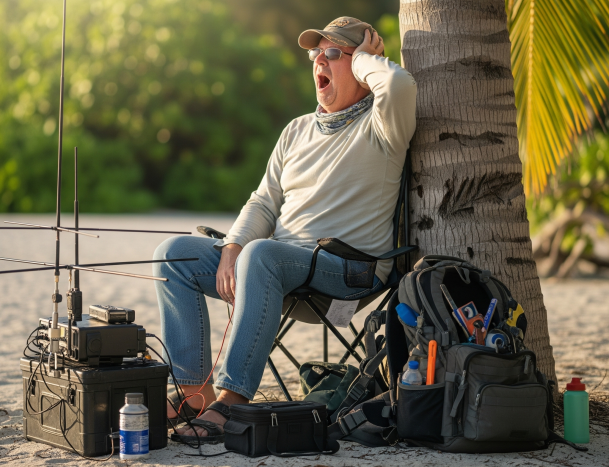
✅ Invest in Good Headphones: Don’t go cheap here. Some of the best options include:
🎧 Sony MDR-7506
🎧 Sennheiser HD-280 Pro
🎧 Shure SRH840
🎧 Beyerdynamic DT 880
Comfortable padding and neutral audio reproduction are key.
Recovery Time
How long does it take to bounce back from LF?
Anywhere from a few minutes to several days, depending on exposure and intensity.
But the important part? Listen to your body. If the ringing subsides, the pressure lifts, and the joy returns — you’re good to go.
Final Thoughts
Listener Fatigue is the hidden cost of hardcore DX.
It sneaks up on us — disguised as just another “long night on the mic.” But unchecked, it can rob you of the passion that fuels this amazing hobby.
So be smart. Take breaks. Tweak your gear. And respect your ears.
73 de Darren, 43DA001, World HQ Member
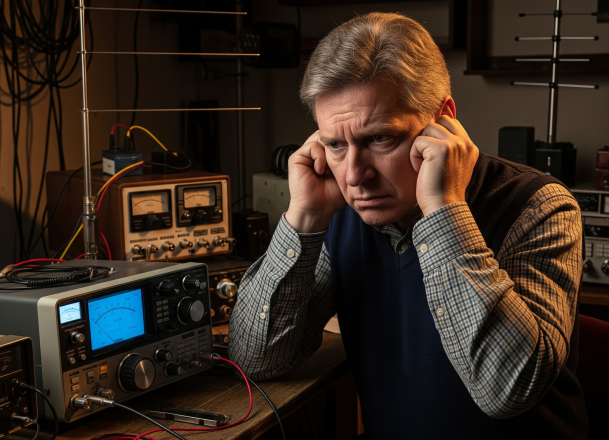

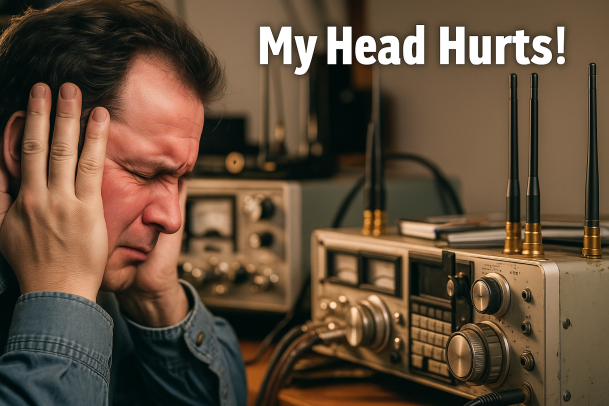
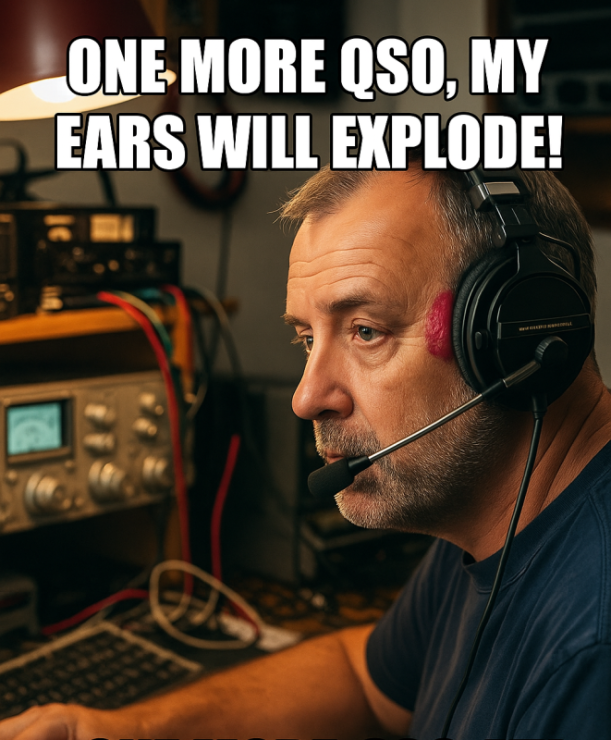
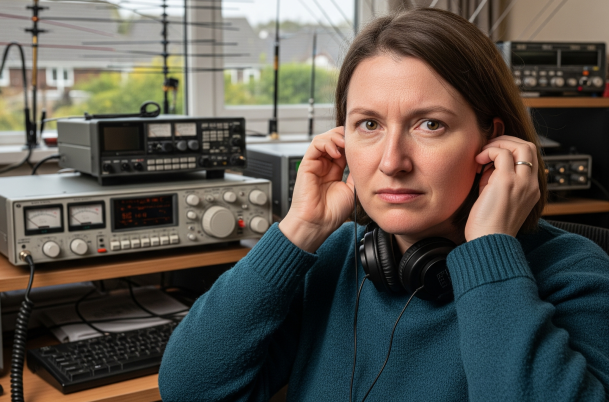
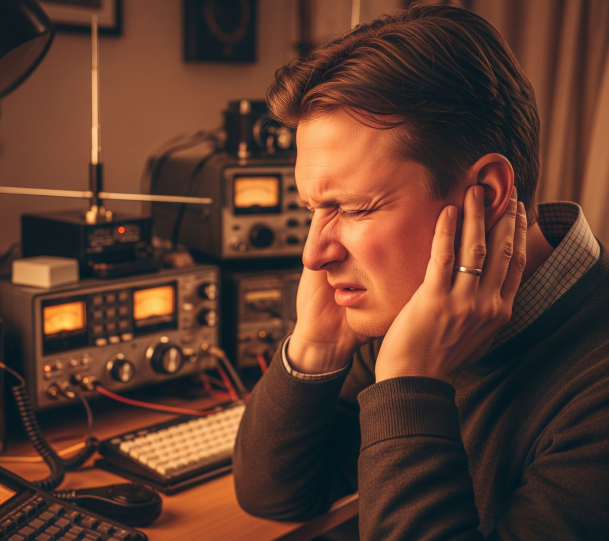
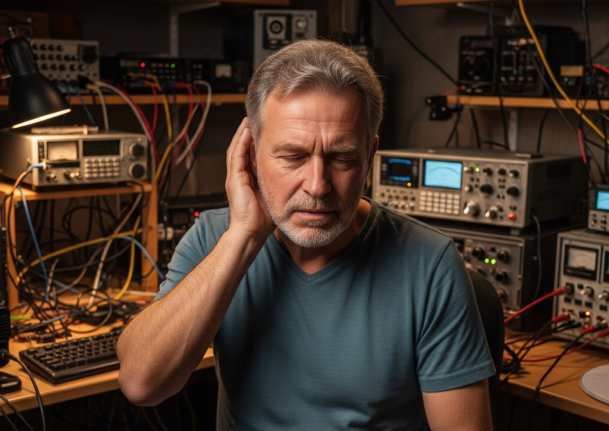
Leave a Reply